Ashley Wilson and Ellen Scheffer are the owners of Frisky Girl Farm, an 8-acre parcel in North Bend, Washington, in the valley just below beautiful Mount Si. They took a quick break from their work to share their story, with all the frankness, vigor, and charm that exemplifies their two-woman farm.
Ashley’s call to farming came after she worked a cubicle job for three years after college, which she candidly described as “the most soul sucking experience of my life.” In one of those examples of a crisis bringing opportunity, she was laid off during the 2008 recession and while “living my summer of fun employment” she took a master gardening class. She learned about everything from vegetable gardening to landscaping and did volunteer work setting up gardens in urban spaces. Her interest in vegetable gardening led her to a certificate program in organic agriculture at Washington State University, and an internship at Growing Things Farm in Carnation, Washington. “I loved it so much that I just knew this is how I want to spend my days, outside growing vegetables,” Ashley said.
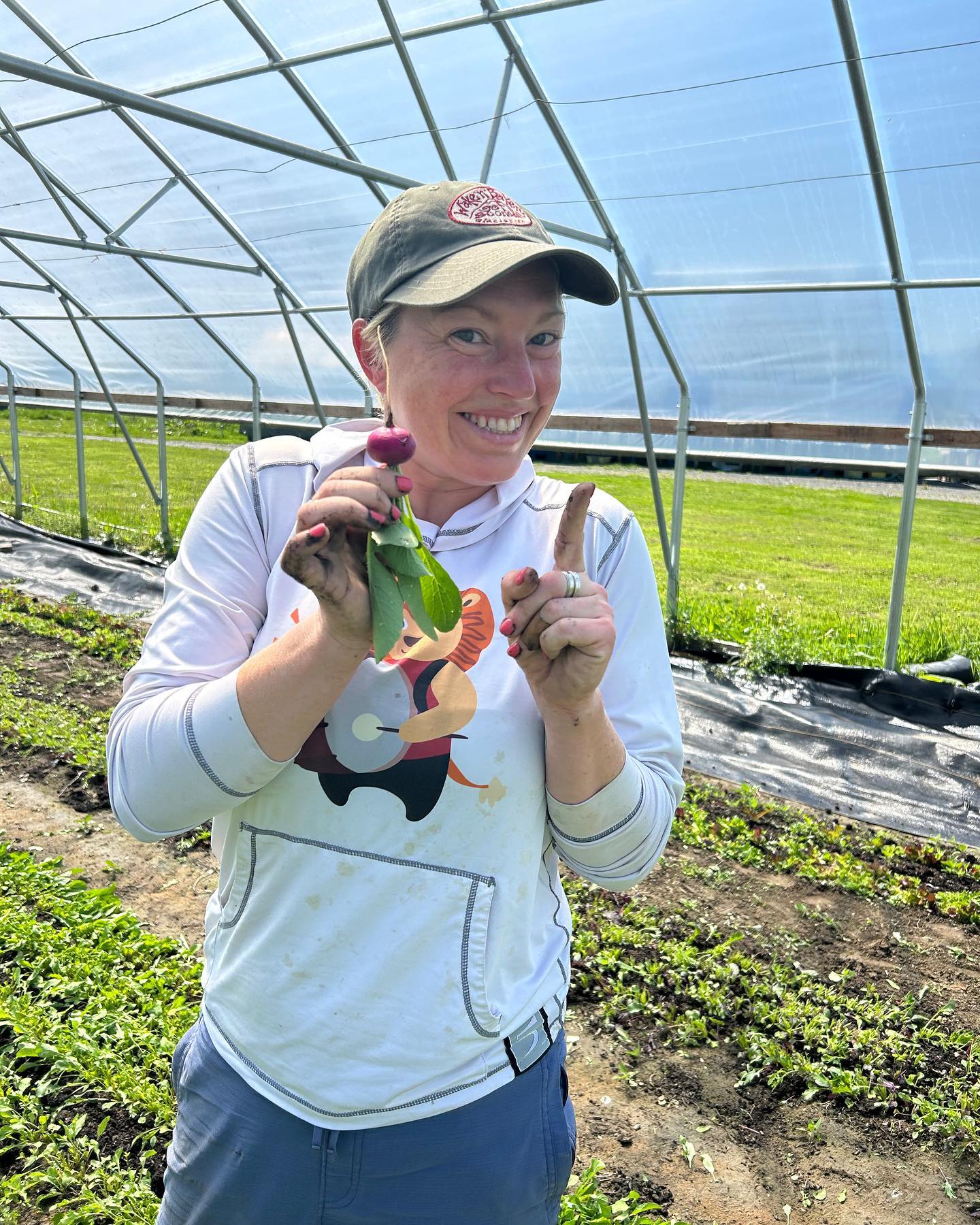
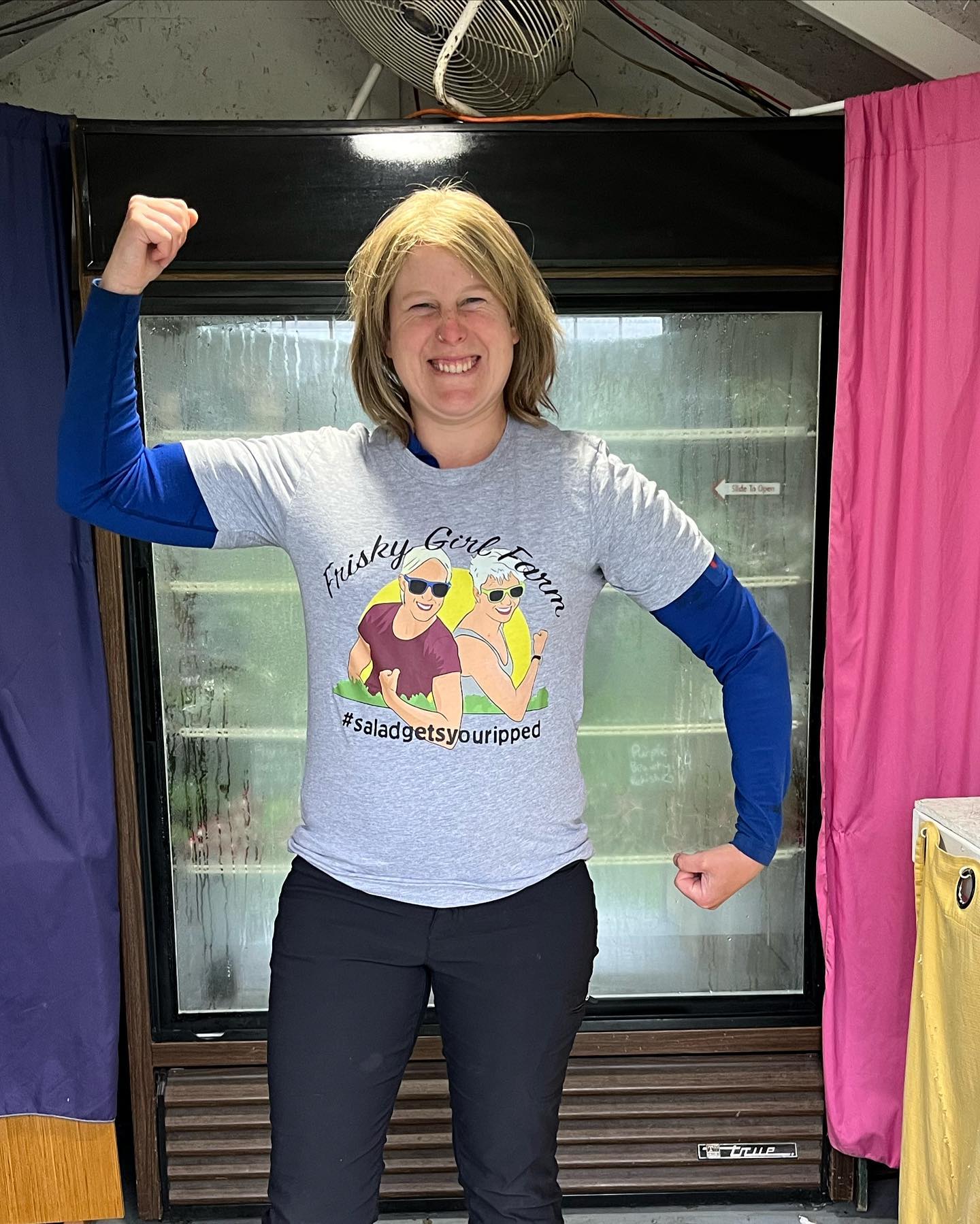
Ellen’s path was different. “I skipped the part where you need a cubicle job to realize you want to be a farmer,” she laughed. During her first semester in college, she took a class called “America’s Dysfunctional Food System.” “Before that I really didn’t know anything about where food came from,” said Ellen, and it was an eye-opener for her. “Luckily my university had a farm that was associated and so I was able to start volunteering on the farm, then working on the farm, and eventually living on the farm, all while I was in college.” She has been working on farms ever since.
Ellen and Ashley met at an urban farm called City Grown Seattle, which they managed for three years. They were growing on half an acre split into five parcels, and as Seattle became more populated it was harder and harder to manage. They wanted more land and for it to all be in one place.
At a networking event, they were overheard talking about looking for land and connected with the owner of a field in North Bend who wanted to lease to a farmer. “Basically we got out here and saw the view and we were like, yeah, we will stay,” they laughed. “You can see the farm from the top of Mount Si.”
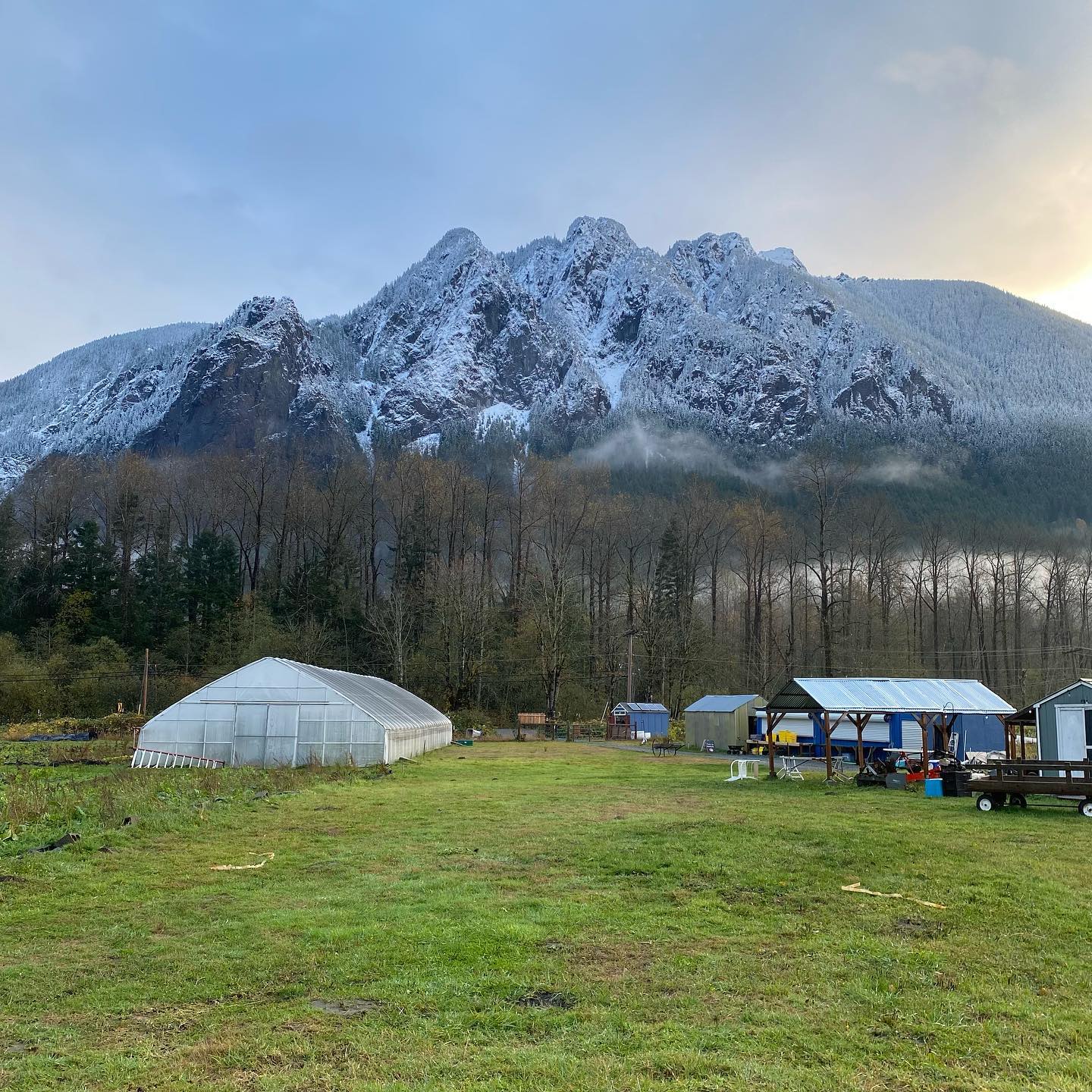
The girls of Frisky Girl Farm use a commonsense approach to farming. “Healthy soil is very important,” said Ashley. “So we try to just make sure that we’re keeping it balanced in the sense that we don’t take too much out without putting back in. We grow really delicious food and if we break the soil, we can’t do that anymore.” Ellen added, “On a personal level, we don’t want to be working with any gross chemicals. It makes so little sense to me that we use poison to grow our food when that’s what you’re going to put in your body. We care about the people we’re growing food for, and we care about ourselves, and we wouldn’t want to work with anything like dangerous or toxic chemicals and we also don’t want to put that into the earth.”
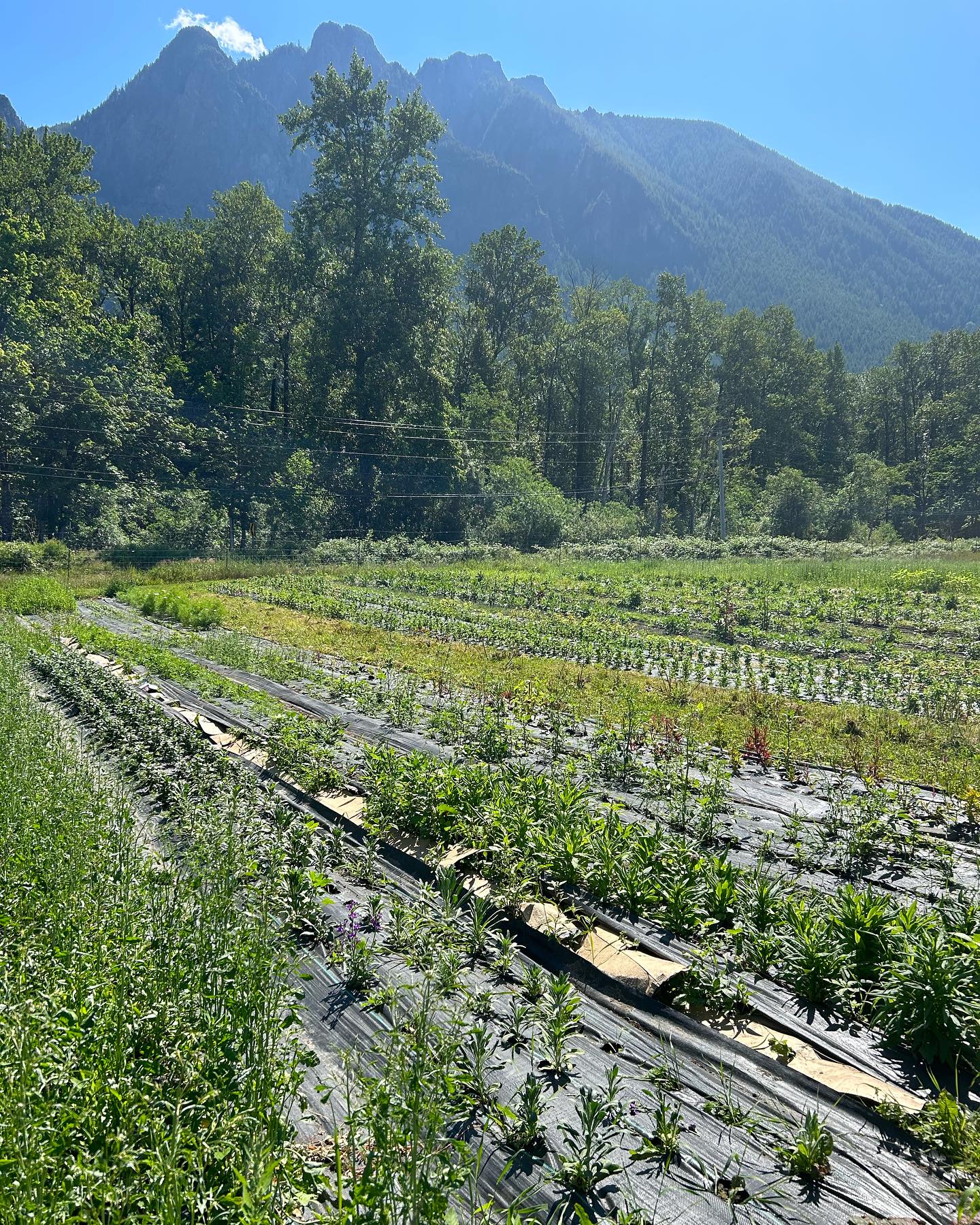
Farming without chemicals means finding other ways to deal with weeds. Hand weeding is very time and labor intensive, and they are working on finding ways to transition to mechanical weeding. One technique they will be trying is using Biomulch which is a plastic-like material made of corn that is compostable and free from chemicals.
Their biggest pest is literally a big one: elk. “There’s a very healthy population of elk out there,” said Ellen. “And they love our salad bar,” added Ashley. They use an electric fence which helps but is a process of constant maintenance since the elk can still break through it or jump over it. The elk stay away more during the summer when the girls live in their trailers on the property, but they are not able to overwinter any crops since when they leave for the winter the elk take free range of the farm.
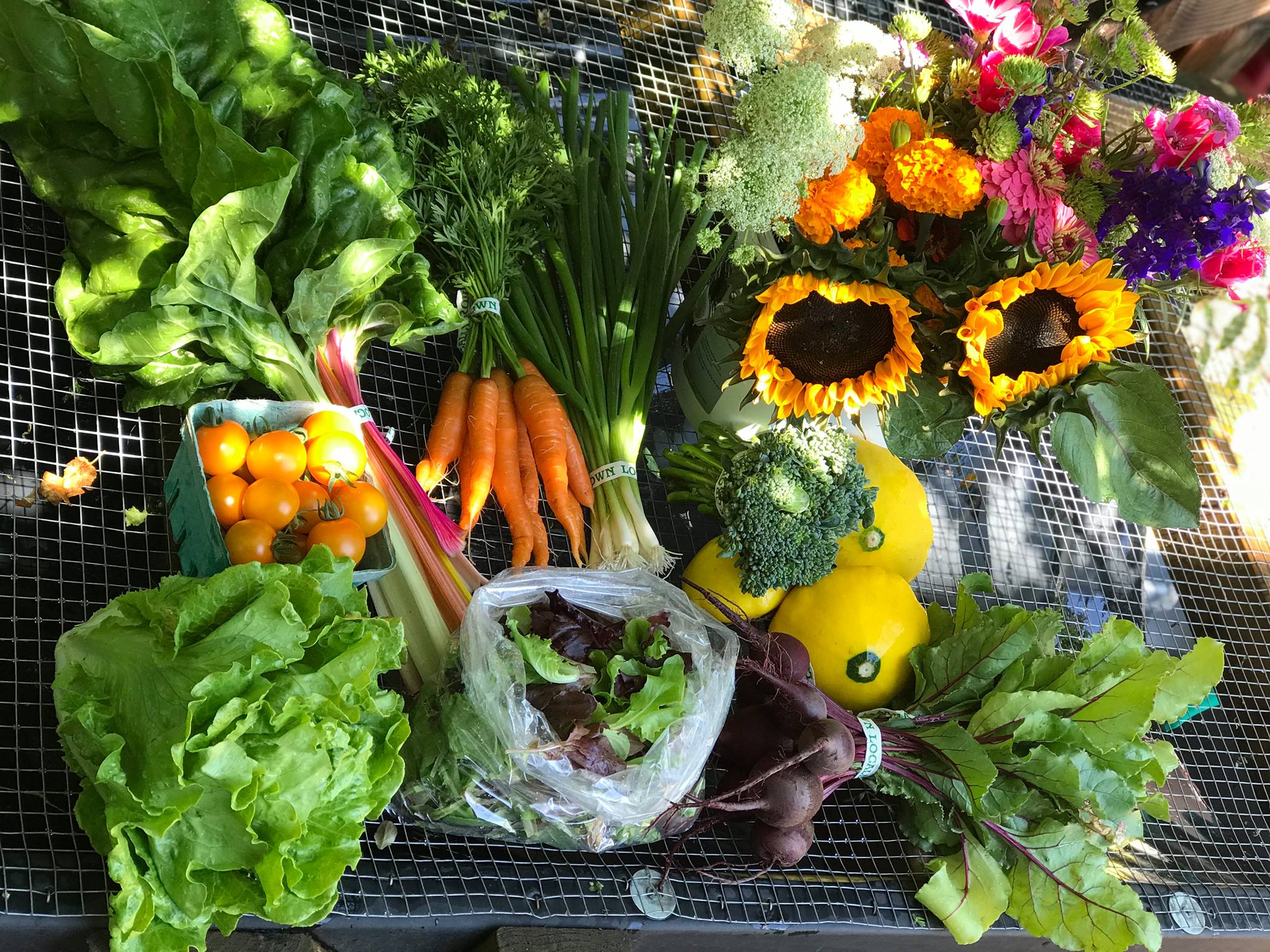
The Frisky Girl duo has developed numerous sales channels for their produce including their own CSA, another cooperatively managed CSA, the local farmer’s market, a distributor called Farmstand Local Foods, and their onsite farm stand.
The model they adopted for their CSA (Community Supported Agriculture, a subscription service to farm products) is called free choice and allows the customer to choose what goes into their weekly bag of produce. “Each week I’ll go through and list on our website what we have available and then they will pick out what they want, and we pack custom bags for every member,” explained Ellen. It works well since, as Ellen described, “the beauty of human variation is that not everybody wants the same thing all the time.” This model allows for higher diversity of crops, which is good for the soil and for customers. “Last year our CSA was 200 members but that doesn’t mean that we’re harvesting 200 of each vegetable each week. It’s very rare that we sell more than 50 count of any one thing, and any given week we might have 30 to 40 different products available.”
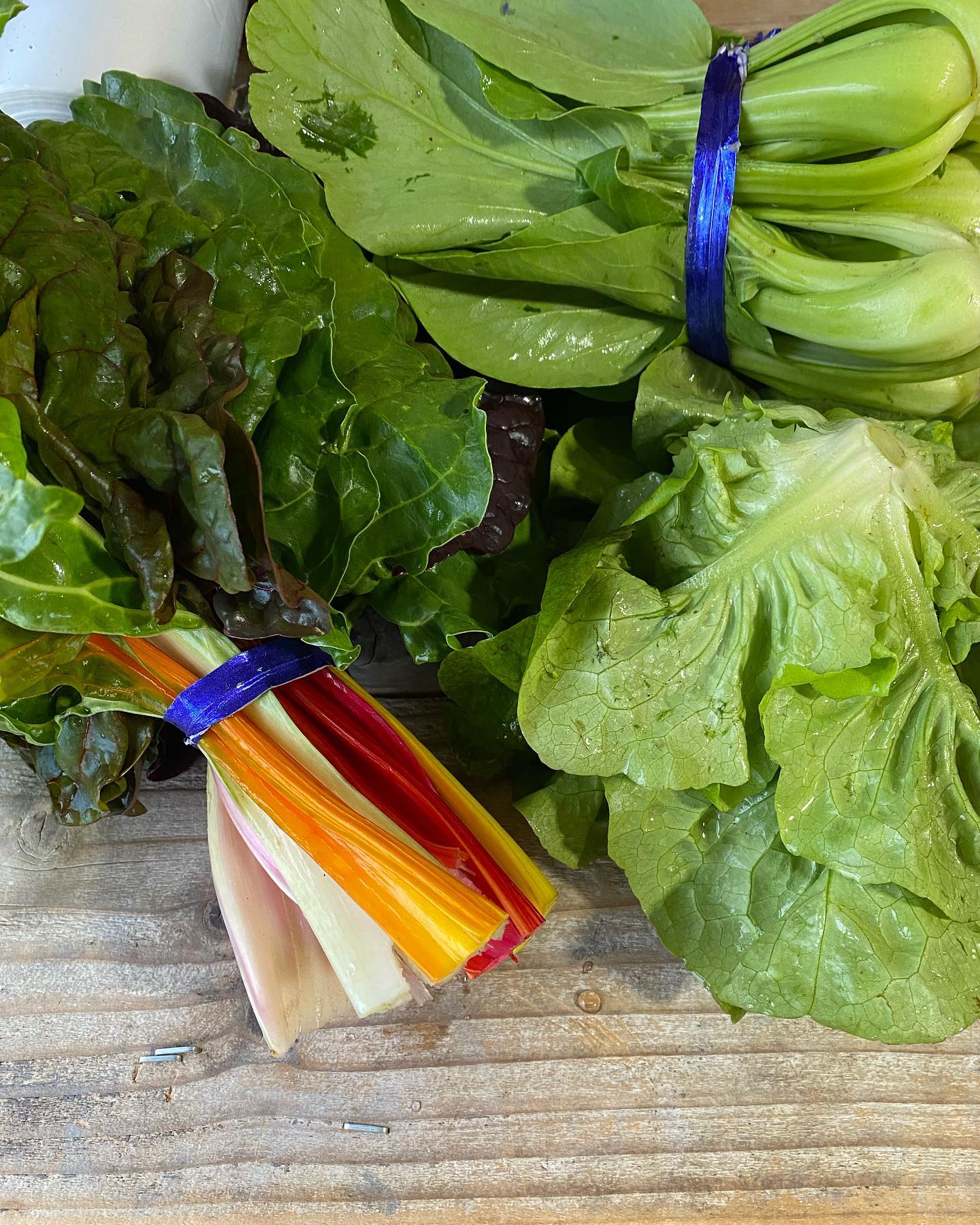
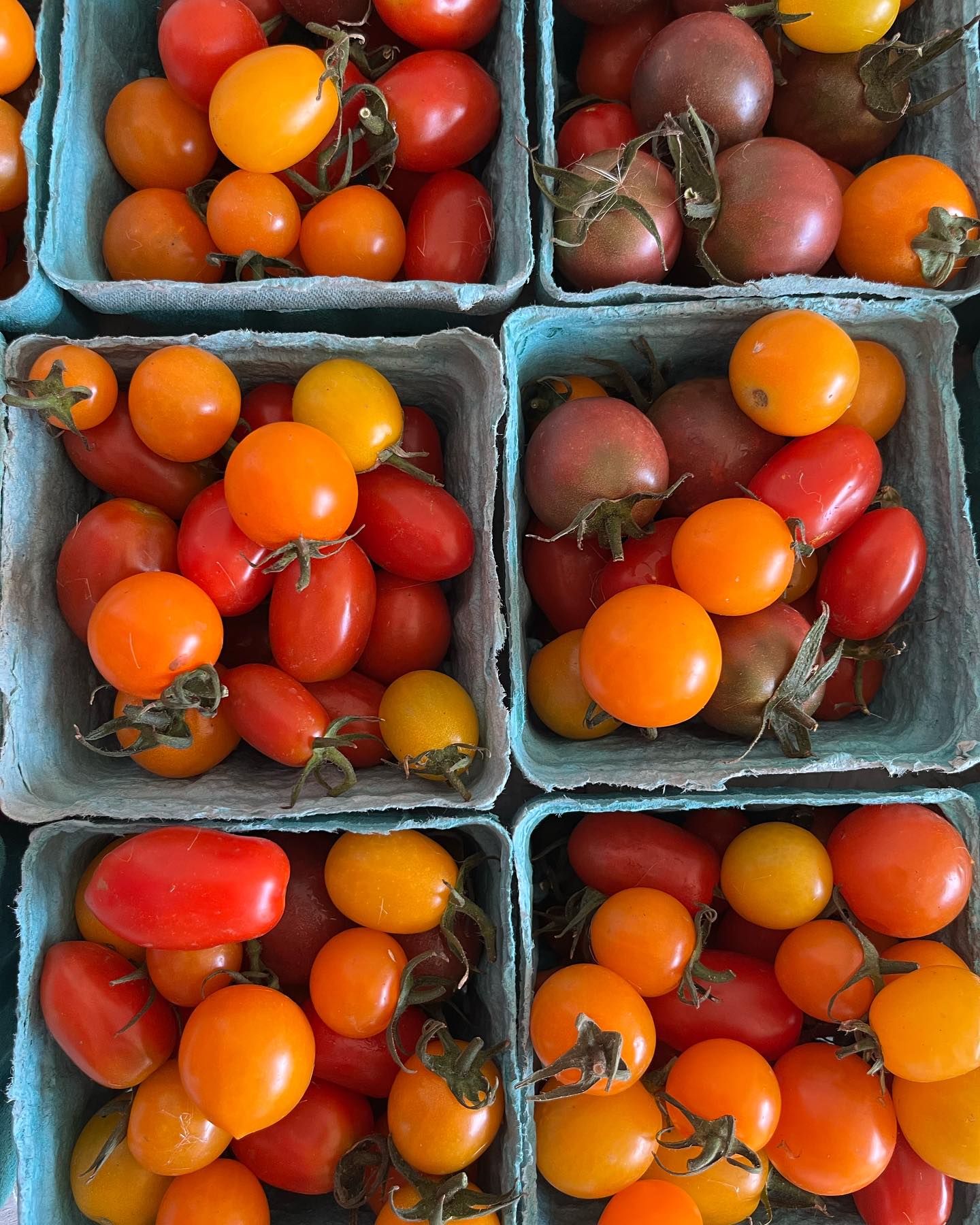
The onsite farm stand was opened not by plan but as a response to the general public just showing up at the farm. “It was like once a day that people were coming into our farm and being like, ‘Hi, what are you doing? Can I buy some of those veggies?’ So we gave them a place where they could come to the farm and support us,” said Ellen. “We can’t grow everything,” she added, “so we have partnered with other farmers to expand what we’re able to offer in our farm stand. I feel like we have built a really strong community here in North Bend just because we are the only veggie farm out here.”
She is on the board of Sno-Valley Tilth, an organization that works to support farmers and hosts monthly farmer gatherings at various farms. “Farming can be very isolating and getting a chance to leave your farm, go to somebody else’s farm, see what they’re doing it, commiserate, it makes you feel better about what you’re doing. You learn new ideas, you share things, and we share a meal and get to hang out with each other.” Ashley added, “They sure do show up for us when our buildings blow down. So many people come out and help clean up, and it’s just really great.”
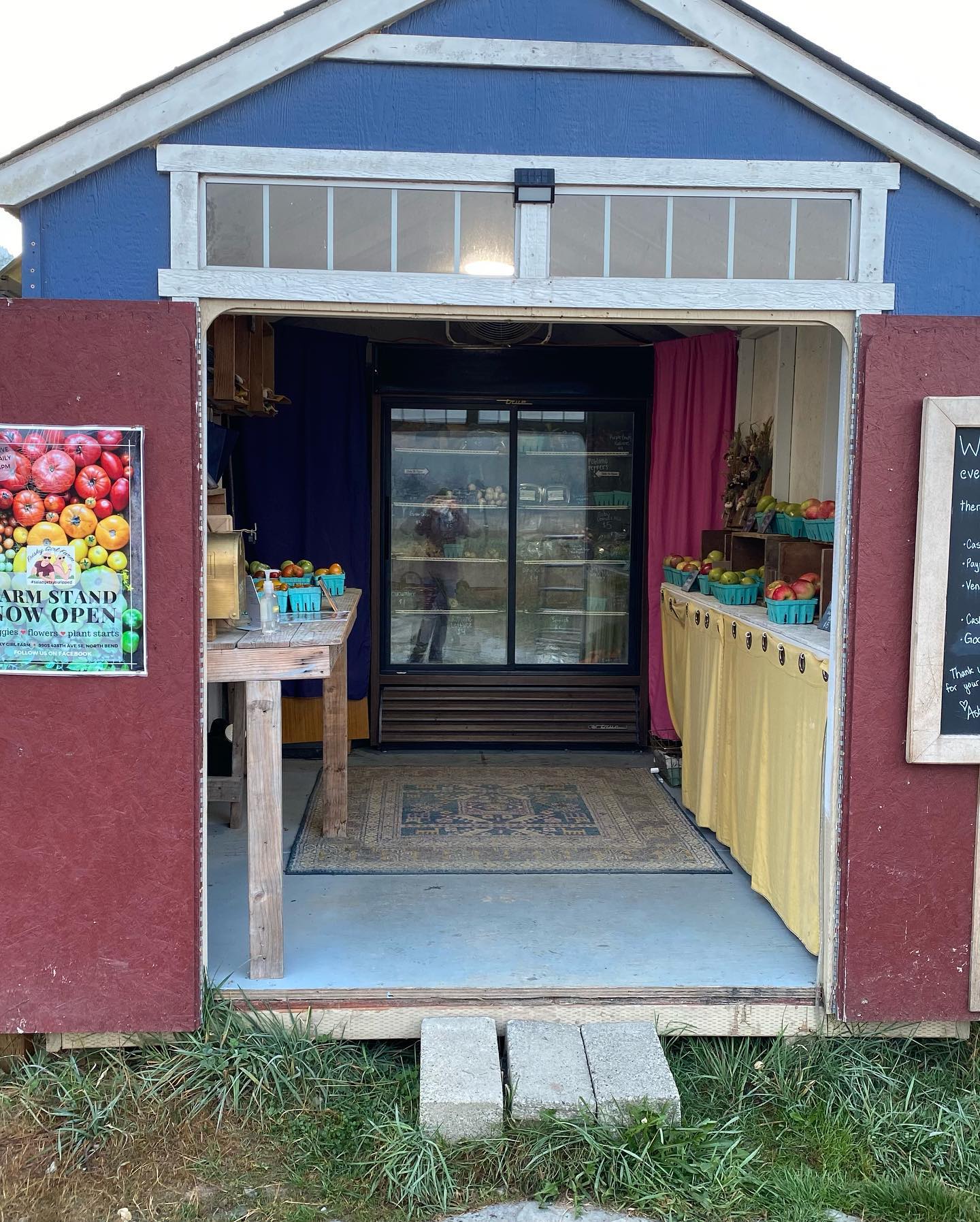
The valley where Frisky Girl Farm stands is tormented by strong winds. “We have yet to make it through a winter without losing a substantial piece of infrastructure,” said Ashley. Their greenhouses and processing areas are torn apart by winds each year, and it takes substantial amounts of time, effort, and money to rebuild. This year, they have been forced to dial back how many crops they are producing so they can focus on rebuilding the farm. “We’re going to build some buildings that don’t blow down,” said Ashley. “You know, we’re learning how to be engineers every year. What works and what doesn’t.”
Ellen and Ashley were frank when it comes to the economic side of market gardening, sharing that making 20k each is considered doing pretty well in their business. Comparing this to the cost of living in the Seattle area is staggering. “You have to cultivate a certain lifestyle, and it’s a frugal one,” said Ashley. They emphasized that it was the lifestyle they were after, not the money, and that no one goes into farming because it pays well. However, the compromises they make to be able to do work they love and be invested in a system they care about are real. “That comes into focus when we’re talking about buying equipment or making improvements. It takes money in order to do those things and you’re not making a lot,” explained Ellen. “You’re dealing with the trade-offs between, OK, do we want to buy this thing that’s going to make our farm functional or be able to pay ourselves?” Ashley said, “I don’t think people really realize how little we make for how hard we work.” But added, with a smile, “we get paid in joy.”
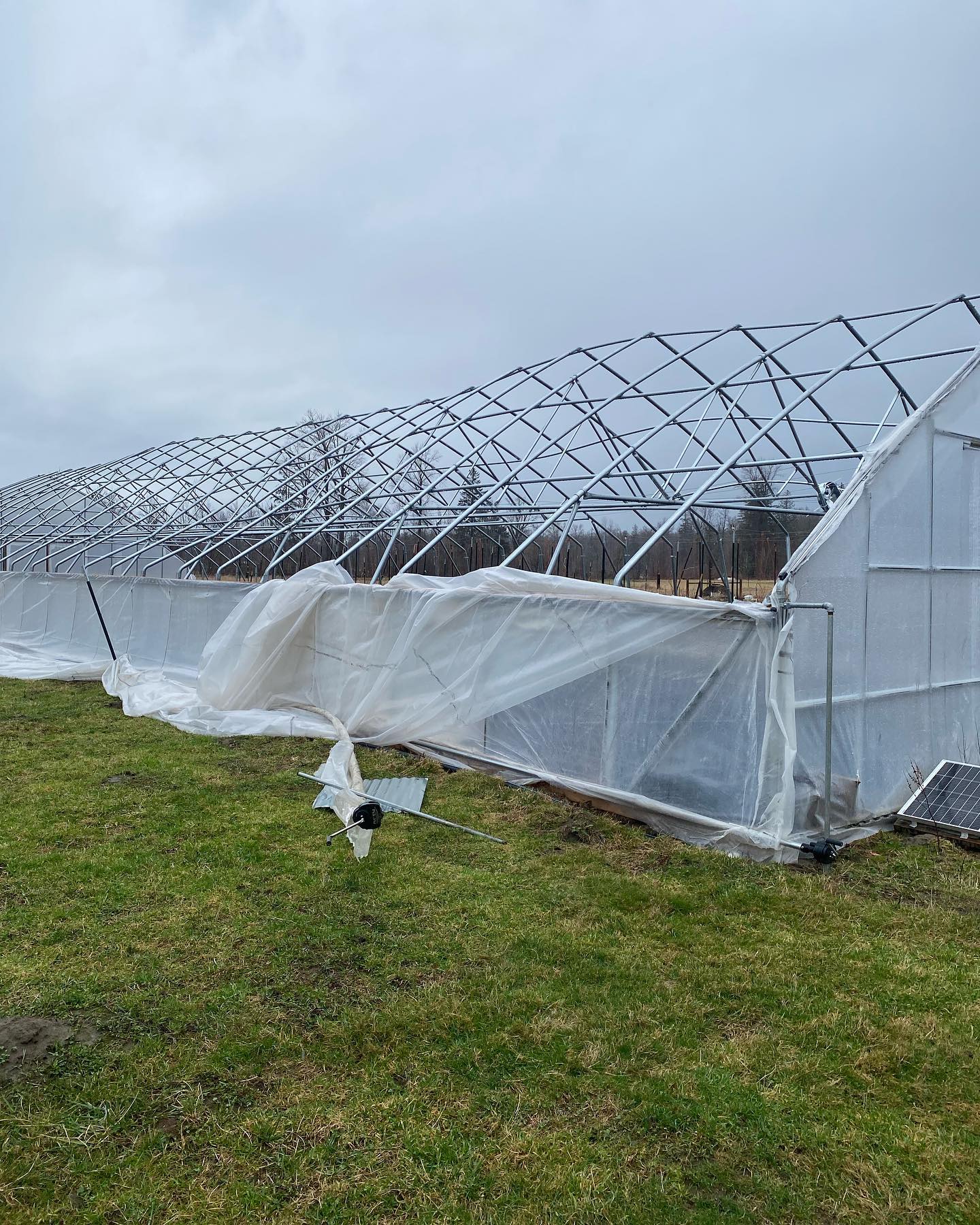
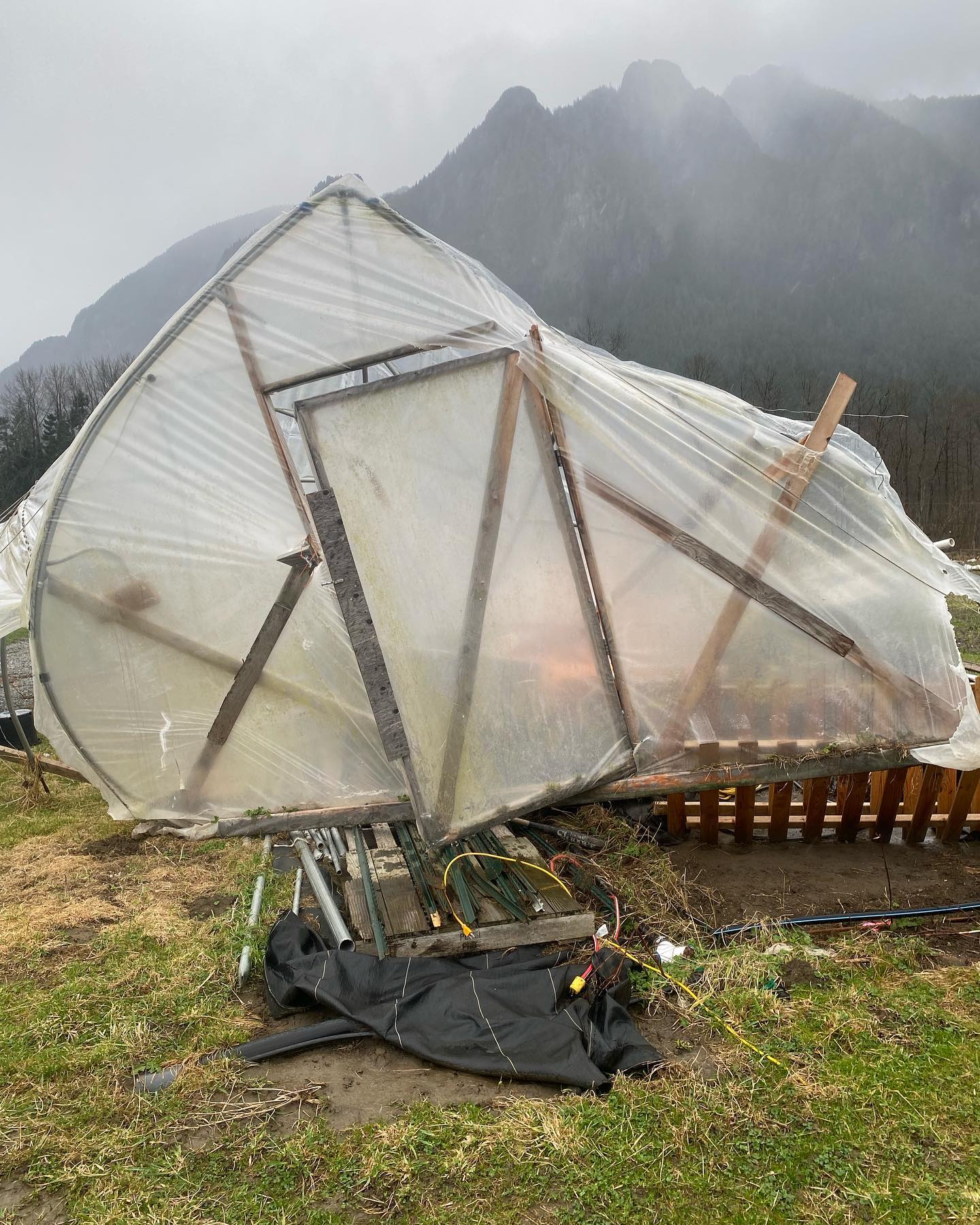
When asked about how they handle the stress of farm life, they shared that they are very intentional about taking breaks. “We came up with a very firm rule that you have to leave the farm for 24 hours once a week,” said Ashley. They take turns sleeping off the farm one night per week, and they try to each take one full weekend off per month. They also take turns with the evening chores of setting the irrigation and closing the farm stand to give one another a break.
Farming is anything but easy. The story of Frisky Girl Farm demonstrates that it takes a combination of determination, hard work, endless rounds of trying, failing, and trying again, and dedicated community support to pull it off. Rallying around our local farmers by purchasing their produce is a small but vital step we can take to help their business thrive.
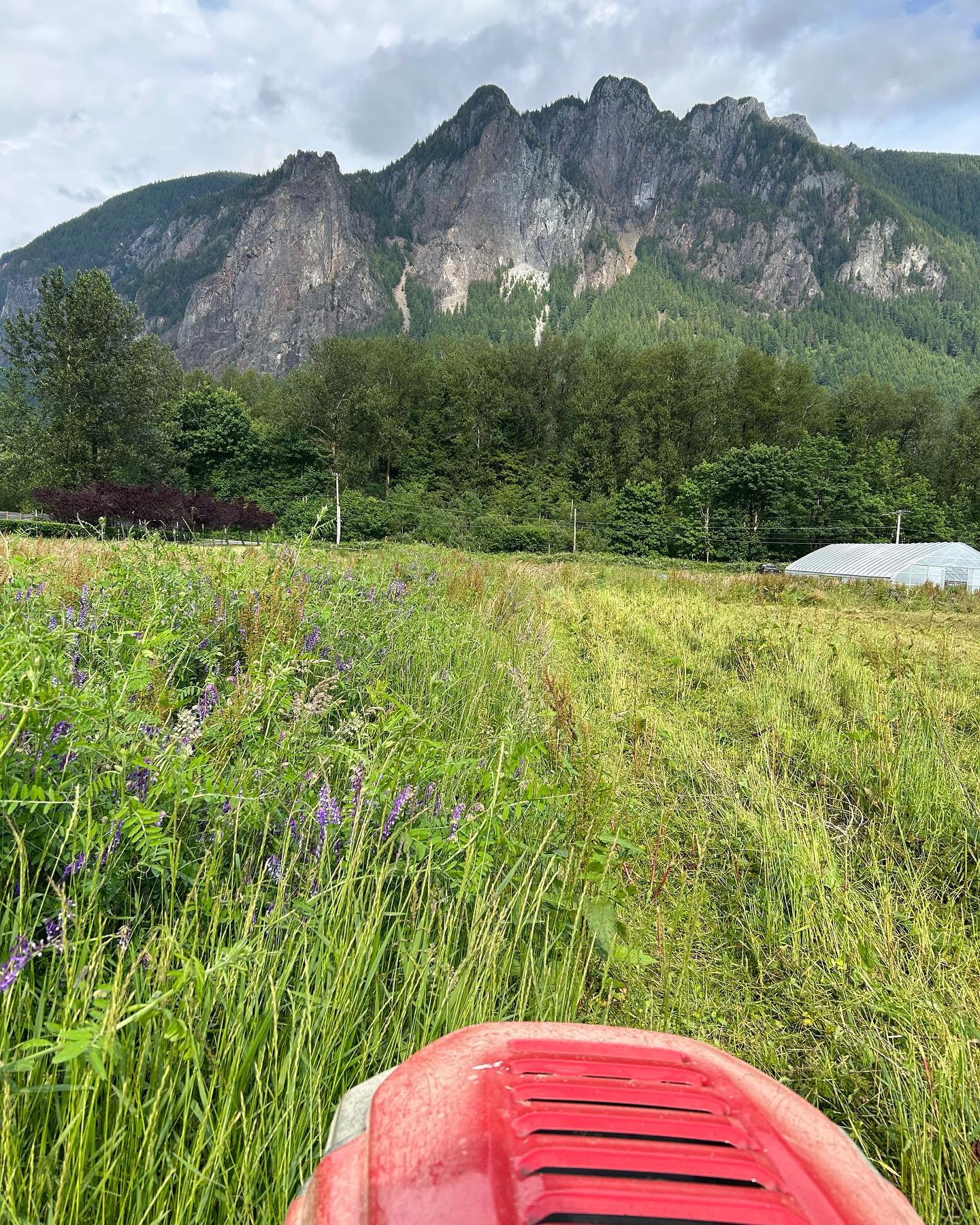
Frisky Girl Farm
“Food nourishes your body and flowers nourish your soul.”

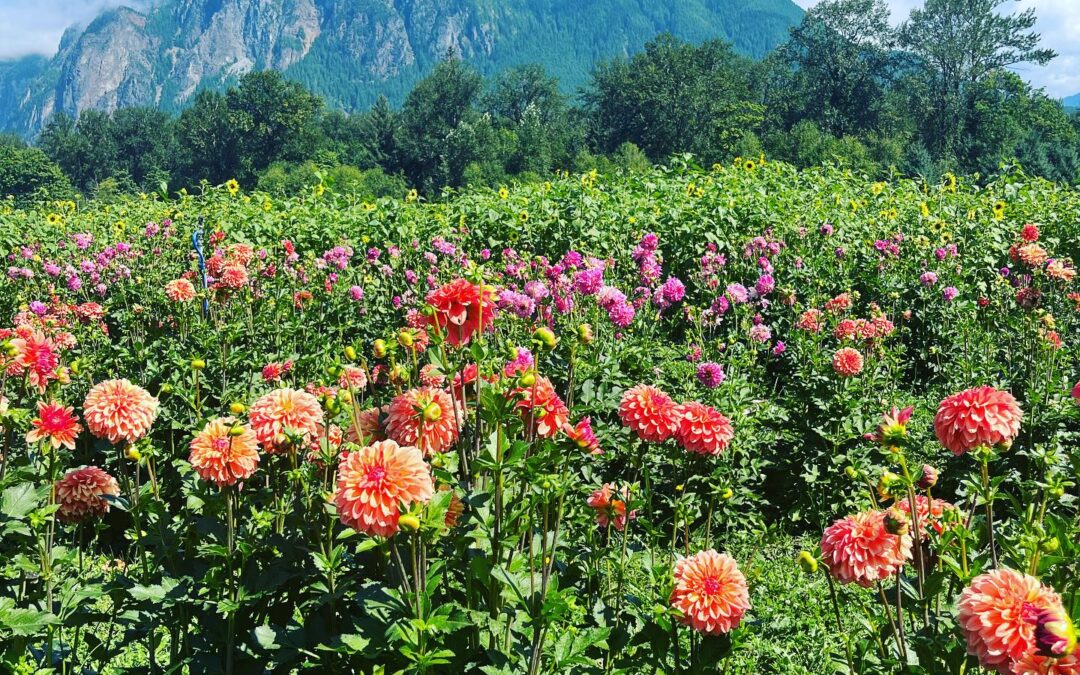
0 Comments